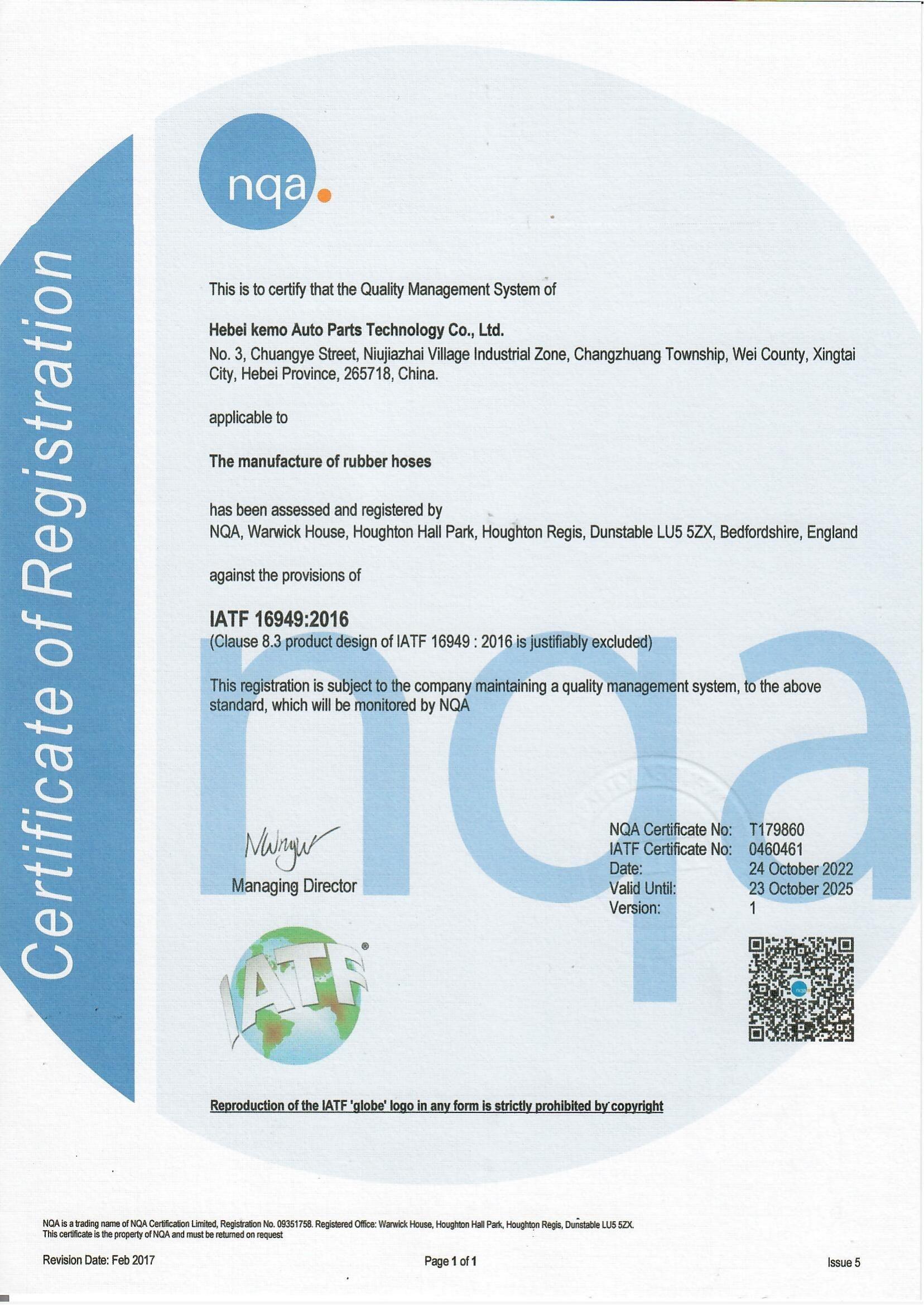Heat Resistant Fuel Line - Durable & High-Performance Solutions
Sep . 06, 2024 21:36 Back to list
Heat Resistant Fuel Line - Durable & High-Performance Solutions
The Importance of Heat Resistant Fuel Lines
In the realm of automotive engineering and design, the performance and safety of vehicles are paramount. Among the critical components that contribute to these factors is the fuel line, which transports fuel from the tank to the engine. In high-performance and high-temperature environments, the use of heat resistant fuel lines becomes essential for the seamless operation of vehicles.
Heat resistant fuel lines are specifically engineered to withstand significant temperature fluctuations, making them ideal for use in various applications where heat exposure is a concern
. Traditional fuel lines, often made from standard rubber or plastic materials, may degrade or fail when subjected to extreme heat, leading to fuel leaks, engine malfunction, or even catastrophic fires. In contrast, heat resistant fuel lines are typically constructed from advanced materials such as fluoropolymer, silicone, or reinforced rubber, which boast superior thermal stability and elasticity.heat resistant fuel line

One of the major advantages of heat resistant fuel lines is their ability to maintain the integrity and flow of the fuel under intense conditions. In performance racing, for instance, vehicles are exposed to high engine temperatures and aggressive driving styles. High-performance fuel lines help ensure that fuel delivery remains consistent, which is crucial for maximizing engine output and efficiency. Any disruption in fuel flow can result in a loss of power or unintentional engine shutdown—outcomes that could cost races or even incur costly repairs.
Furthermore, heat resistant fuel lines contribute to the overall safety of the vehicle. In the event of a fuel leak caused by line failure, the consequences can be dire. By utilizing stronger materials that can endure higher temperatures, manufacturers can significantly reduce the risk of fire hazards, enhancing the safety of both drivers and passengers. This is especially critical in industries where vehicles operate in extreme environments, such as firefighting, military operations, or transportation of hazardous materials.
In conclusion, investing in heat resistant fuel lines is not merely a matter of compliance with industry standards; it is a proactive approach to enhancing vehicle performance and safety. As automotive technology continues to advance, the adoption of durable materials in fuel line manufacturing will play a crucial role in meeting the demands of modern engines while ensuring the safety of all road users. Ultimately, heat resistant fuel lines are a testament to innovation in automotive design, offering peace of mind to drivers and manufacturers alike.
